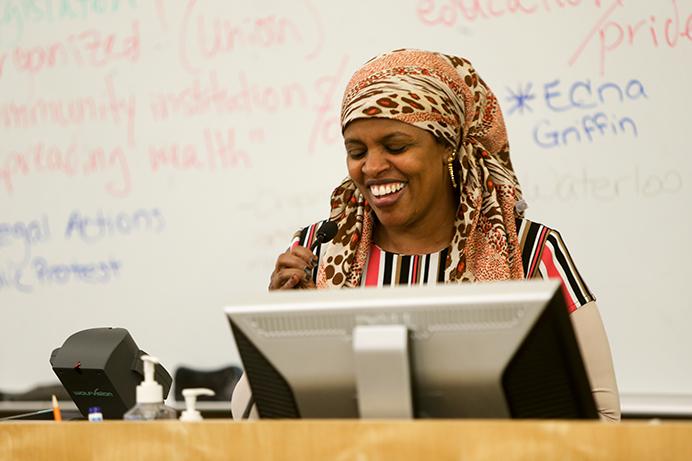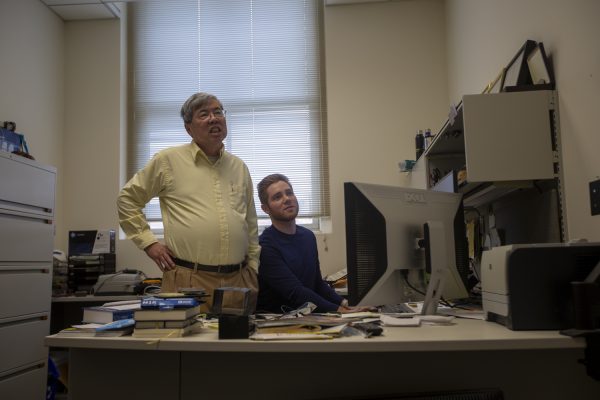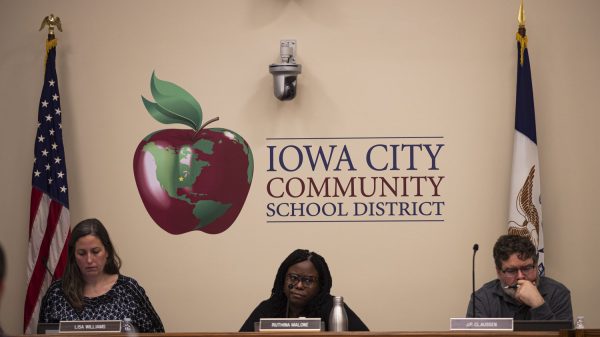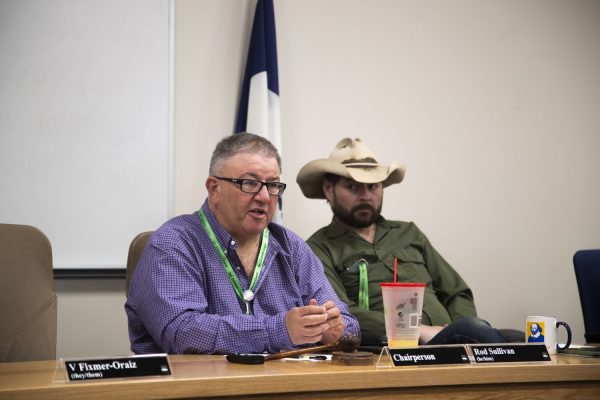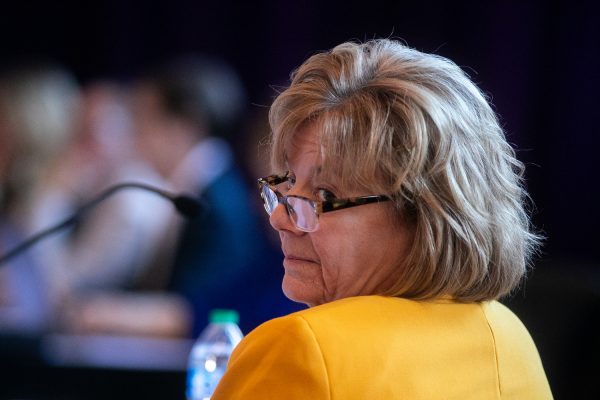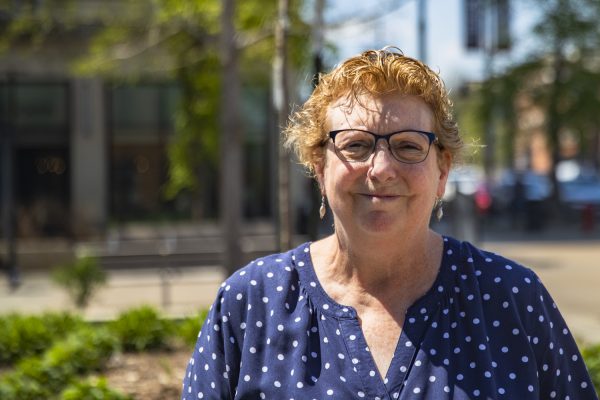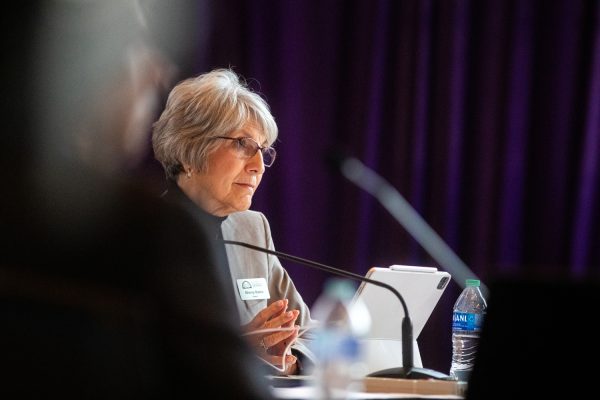The future of labor and civil rights in Iowa
Mazahir Salih talks about the work done by the Center for Worker Justice to safeguard the rights of workers in Johnson County during the “Labor and Civil Rights Struggles in Iowa’s Past, Present and Future” conference at the University Capitol Centre on March 25, 2017, highlighting the intersectionality of civil and labor rights. (The Daily Iowan/Osama Khalid)
March 27, 2017
As power in the state and federal government shifts to the Republican-dominated legislative bodies after the 2016 elections, workers are organizing to protect their rights.
To draw on the connections between past and present civil-rights struggles in relation to the workplace, the University of Iowa Labor Center held a conference titled “Labor and Civil Rights Struggles in Iowa’s Past, Present, and Future” on March 25 in the University Capitol Center.
John McKerley, a historian who works with the UI Labor Center, opened with a discussion of a movement of European immigrants from the east to Iowa and the Midwest in an interactive portion of the event.
“There was an effort to try to preserve it and turn it in to white space and to create barriers to people of color living in this space, whether they be Native Americans or whether they be African-Americans,” he said.
McKerley said that even in the union movement, there was some resistance to integration of unions in workplaces. In industrial unions, however, there was more realization that their power as workers came from organizing everyone, regardless of race.
“Any act of organizing — even if white workers didn’t come to the table questioning white supremacy — the act of organizing, the act of getting to know people, the act of fighting to create a union that was effective transformed them and transformed the way they thought about the work,” he said.
Workers’ rights are in question, especially in Iowa, where the state Legislature voted in February to change collective-bargaining laws that affect contract negotiations for workers in the public sector. The current political fears and concerns factored into the day’s discussions.
“Every day is a new sort of insult to our dignity,” said Tracy Leone of the Iowa Federation of Labor staff. “The Legislature has been moving to take away our rights one by one, and not little by little; it’s heap by heap, chunk by chunk.”
Mazahir Salih, the president of the Eastern Iowa Center for Justice who recently announced her plans to run for a seat on the Iowa City City Council, spoke as one of four panelists to wrap up the event. She noted the successful increase in the local minimum wage and efforts to provide justice for all immigrants.
Despite this progress, she also acknowledged the feeling of moving backwards and letting progress slip. She referenced the January Women’s March on Washington and other ways in which people such as Martin Luther King Jr. advocated for civil rights as inspiration.
“Right now, with this timing, I feel the country’s going back, not going forward,” she said. “That’s why we still have to continue fighting …”
By 2042, the majority of Americans will be people of color, said Jamal Watkins, the national outreach director for the AFL-CIO. As young people diversify more rapidly and the country’s demographics change, he said, our leaders should reflect that change. He also said although race has historically been used to divide the nation and labor movement, connecting issues of poverty and job access will help transform the experience of all working people.
“If one community is hurting and being oppressed economically, it drags down wages and all of the other economic opportunities for everyone else,” Watkins said.



